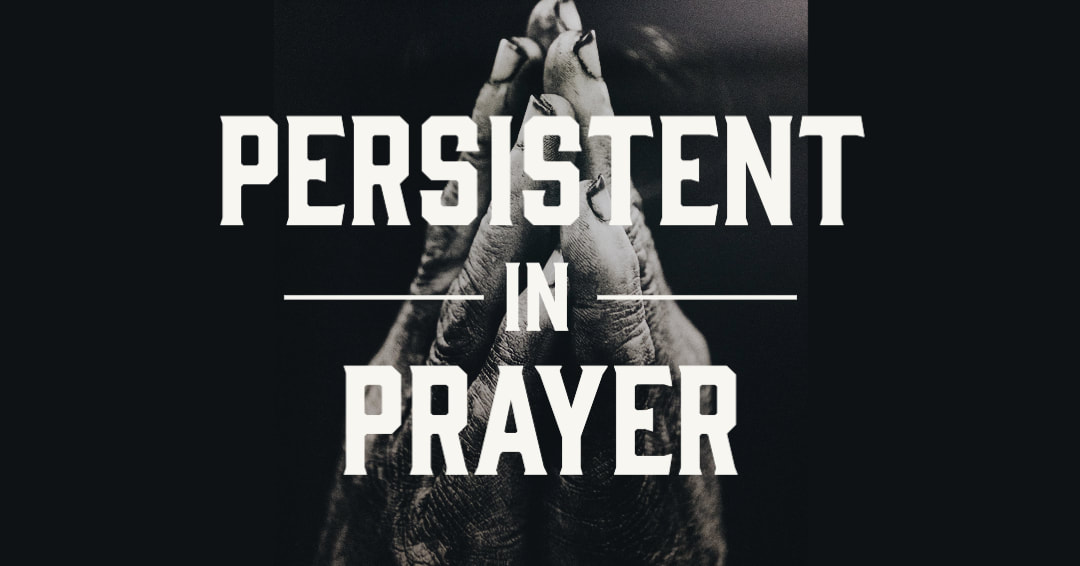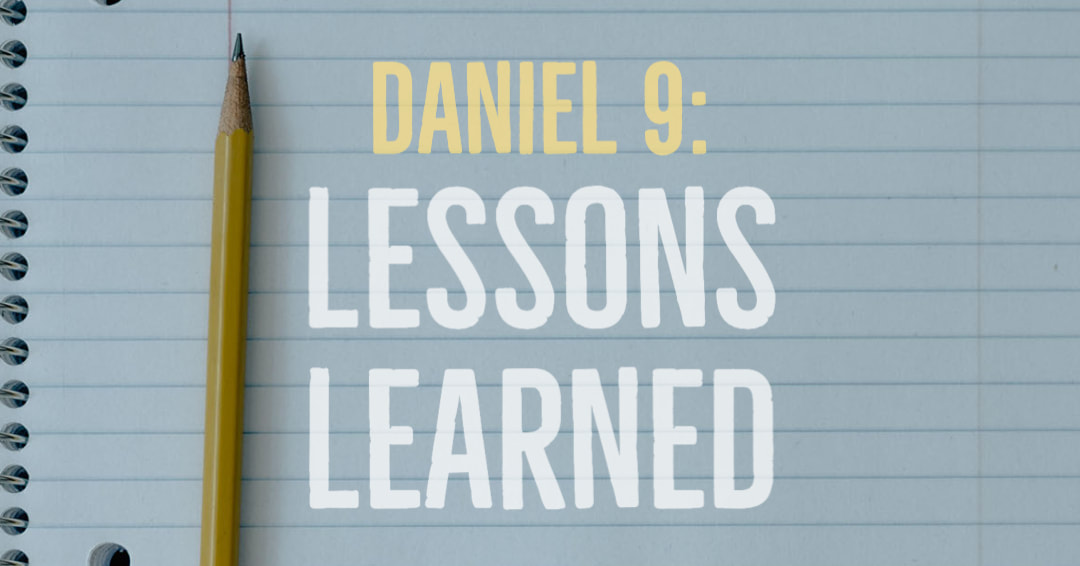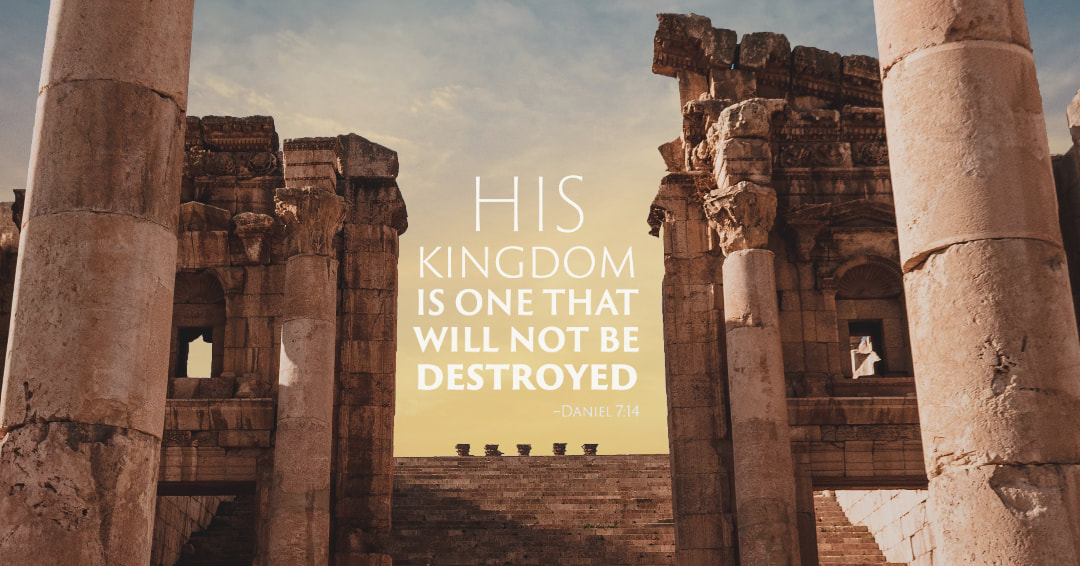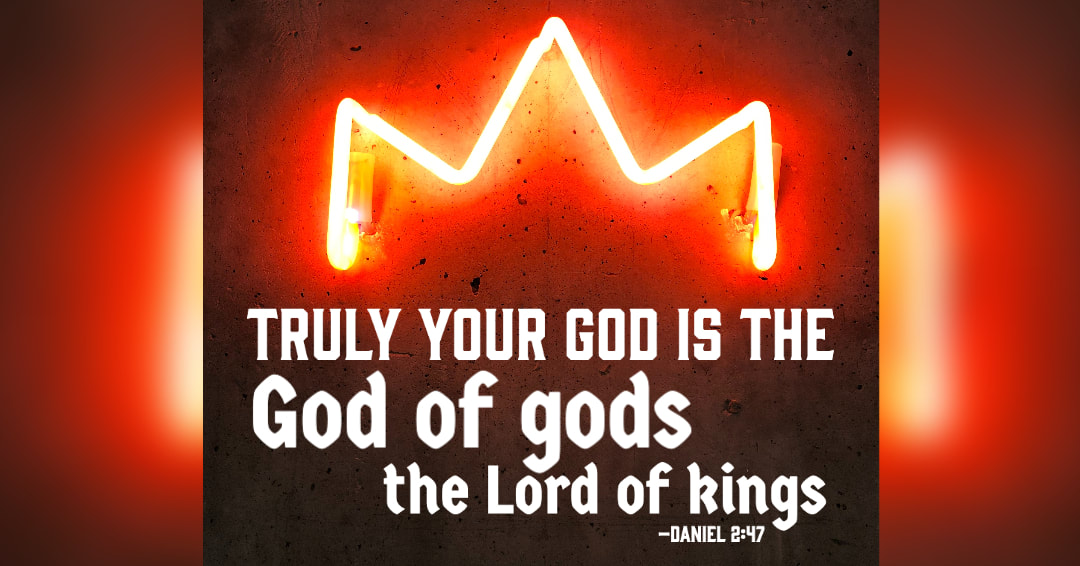Read the word.
Teach the word.
Preach the word.
- 1 Timothy 4:13
|
The final chapters of Daniel provide a prophetic outline of the end of this age—complete with details and timelines, warnings and promises. And yet, you might be wondering what Daniel might have been wondering—does this have anything to do with me?
At the very end of the book of Daniel—after all of the amazing prophetic details, an angel tells Daniel, “But you go your way till the end for you shall rest and will arise to your inheritance at the end of the days.” (Daniel 12:13) Did you catch that? “But you…” As true as everything is that came before it, there’s something specific for you. There are many instances of “But you” in scripture. One instance is found in the little letter called Jude. It fits so well with what Daniel may have been experiencing and speaks to us here and now as we await for Jesus’ second coming. In his letter, Jude identifies apostates—people who look, talk, and walk like a Christian, but who are not Christians and are actually emissaries of Satan. After all of that, he writes, “But you…” and we might think that he is going to tell us how to root up and root out these dangerous imposters, but he doesn’t. He simply encourages us to build ourselves up in the faith, to continue to pray, to stay in God’s love, and to be merciful to others (read it for yourself in Jude 20-25). God had a course He wanted Daniel to complete, and Daniel needed to remain focused on that. God has a course He wants you to complete—remain and be focused on that.
In the Gospel of Matthew, Jesus answers questions regarding His second coming. In His answer, He refers to the ‘abomination of desolation’ that the prophet Daniel spoke about. The scripture encourages those who read this portion to understand what it all means.
So…what does it all mean? What does the ‘abomination of desolation’ have to do with Jesus’ second coming? What does Daniel say about this? And why is it important that we understand? These are all questions we pondered and answered in our study of Daniel this past Sunday. Turn in your Bible to Matthew 24 and Daniel 11 and watch the message from Sunday as we concluded our study of the book of Daniel. There is a real but unseen spiritual realm where a battle is being fought. There are angels and there are fallen angels who are constantly battling over us. But we are not caught in the middle of the fight—we can participate in it (see Ephesians 6:11-13). Your prayers change how things go in that battle—and sometimes persistent prayer is what is necessary to win the battle.
So remember who and what you’re fighting for. Be persistent in prayer, continuing firmly and obstinately in spite of difficulty and opposition. Fight by faith and remember Nehemiah’s encouragement: “Do not be afraid of them. Remember the Lord, great and awesome, and fight for your brethren, your sons, your daughters, your wives, and your houses.” (Nehemiah 4:14) Be persistent in prayer—in spite of difficulty the devil throws your way. Resist the devil and eventually he must flee from you (James 4:7).
Whether we realize it or not, we are in a fight. But this fight is not a physical one—it is a very real spiritual battle with spiritual weapons and spiritual enemies. Just because you cannot see this battle does not make it any less dangerous or any less real.
Knowing this, what does it look like to fight by faith? How do we fight an enemy who is real, but unseen? How can we engage in this fight while resisting all the devil’s methods of attacks? These were questions that we asked as we considered Daniel 10 this past Sunday. In this chapter, Daniel shows us the importance of fighting by faith on behalf of his people. Watch our study in Daniel 10 as we learned the importance of being persistent in prayer.
In Daniel 9, Daniel receives a gift. This wasn’t a physical gift, but the skill to understand something very specific. The gift was the ability to understand the exact timeline of all the remaining future of the nation of Israel.
At first read, it’s clear to see why Daniel would need the skill to understand one of the most astounding prophecies in all of scripture. But as we slowly and carefully work our way through the passage, the details come into focus. Watch our second study of Daniel 9 as we reviewed the first part of the chapter then considered the prophecy Daniel received regarding the future of the nation of Israel. There are many lessons that we can take away from a close study of the first section of Daniel 9. Here are some lessons that we learned this past Sunday:
God longs to use you, speak to you, and bless you with insight and understanding at every age of your life. Remember that Daniel was a teenager when he was taken to Babylon. Daniel determined in his heart ahead of time to obey and serve God, who used him greatly and miraculously throughout his entire life. The same Holy Spirit who helped Daniel to understand the Scriptures is the same Holy Spirit who helps us to understand the Scriptures. Daniel read Jeremiah just like we read Daniel. And just as Daniel realized from the Scriptures that something very significant was about to happen, by the power of the Holy Spirit, we can do the same. When we pray for our nation, we need to include ourselves in need of God’s mercy. When Daniel realized the significance of what was going to happen, his reaction was one of mourning, praying, fasting, and confession for his nation’s transgressions. He even included himself as a transgressor as he sought mercies from God. When we pray, we need to present our supplication with wisdom and passion. Daniel didn’t hold back when he approached God for mercy. The word ‘supplication’ means to beg for something humbly and earnestly. It’s more than okay to be passionate in prayer as long as you remember who you’re speaking to and why He should listen to you: “we do not present our supplications before You because of our righteous deeds, but because of Your great mercies.” (Daniel 9:18) God is merciful. God is merciful and gracious, longsuffering and abounding in goodness and truth. Daniel acknowledged that God had every right to refuse listening to his prayer—and yet, we do not approach God because we are righteous but because He is merciful. Student of Scripture—read and heed the lessons God longs to teach you as you open your heart, and your mind, and your eyes, and your ears to His word!
Prophecy is one of the main ways that God authenticates Himself as the Author of the Scriptures. Over 25% of all the verses in the Bible contain detailed information concerning the future. Over half of all those prophecies have already been fulfilled just as God said they would.
Throughout the book of Daniel, we’ve observed that what was future prophecy for Daniel is ancient history from our perspective. Daniel 9 is one of those chapters where we see ancient history and future prophecy from our perspective. Watch our study from Sunday as we began our study in Daniel 9, considering both the prophecies foretelling events that occurred in the ancient history of the nation of Israel and prophecies for the future not yet fulfilled. God feeds the ravens. He clothes the lilies. And He loves us so much more than those! He loves us so much that He gives us promises we find in His prophecies. And if His promises hold for something as astounding as the rising and falling of world empires, His promises will hold for something as personal as the problems we face.
We are learning and choosing to trust Him. We’re learning and choosing to trust God with everything—from His plans for world empires to the problems that keep us up at night. We can trust Him because His promises are true. He has promised to finish the work that He has started in you (Philippians 1:6). He has promised to never leave you or forsake you (Hebrews 13:5). He has promised to be with you now, even until the end of the age (Matthew 28:20). And despite what happens, He will hold fast. He will keep His promises. He will be faithful to fulfill His word. As we wait for those promises to be fulfilled, He tells us to not fear, for “God is pleased to give you the kingdom.” (Luke 12:32). His kingdom is coming! Are you ready? Is He your King? Simply confess with your mouth that Jesus is Lord and believe in your heart that God has raised Him from the dead. The Bible says that if you do this, you will be saved (Romans 10:9). Ask God for forgiveness. Believe that Jesus died for your sin and that God raised Him to life. Trust Him as your Savior and follow Him as the Lord of your life!
God is the only One who is trustworthy. He is the only One who can see the beginning from the end with perfect accuracy. So you can trust God’s word! He has established and authenticated it beyond a shadow of a doubt.
One of the ways God has authenticated His word is through prophecy—prophecy like we find in Daniel 8, which foretold events in history centuries before they happened. Watch our study of Daniel 8 as we carefully considered these prophecies. Centuries ago, Daniel was given a vision. This vision was a summary of the earthly empires—from Babylon all the way to God’s everlasting kingdom. The content of his vision is fascinating, but what’s just as interesting is Daniel’s reaction. When he was told that the earth would endure at least four brutal, bloodthirsty, and awful empires before God’s kingdom would come, he wasn’t elated—he was broken and troubled.
And yet, Daniel did not give in to despair. He was not going to go down without a fight of faith. We see in Daniel a desire to seek insight and to understand if there is any part for him to play personally. And as we wait for the kingdom to come, there is a part for us to play too! We can learn from Daniel’s response. So often, our hearts are filled with pride when it comes to our knowledge of Bible prophecy. Rather than being broken over what has been revealed to us, we are often tempted to gloat about knowing what will happen. But the part we have to play in this in-between time is not just to know Bible prophecy. Knowledge puffs us, but love builds up. Love is knowledge plus action. We can’t get so comfortable in our own salvation that we forget about those who have yet to yield to Jesus and what the future holds for them. In light of God’s kingdom coming, you have a part to play. If you are a citizen of His kingdom, tell others about what is going to happen and introduce them to Jesus. If you’ve yet to yield to Christ, you can become a citizen of His kingdom today! Simply confess with your mouth that Jesus is Lord and believe in your heart that God has raised Him from the dead. The Bible says that if you do this, you will be saved (Romans 10:9). Ask God for forgiveness. Believe that Jesus died for your sin and that God raised Him to life. Trust Him as your Savior and follow Him as the Lord of your life! In his vision, Daniel saw the history of earthly kingdoms rise and fall. Though it is as ancient history to us, the events in his vision were yet to come for him. As we pair his prophetic vision with our past, present, and future, we see that all earthly empires will come to an end.
Consider this—as awesome as it was, the Babylonian empire only lasted 70 years before it was destroyed and another empire arose. The reign of the Medes and Persians lasted 200 years followed by the Greek empire which only lasted 180 years. The Roman empire lasted longer than all of those put together—500 years. But they were not conquered or defeated by any exterior force. They fell from the moral corruption within the empire. Yes, empires come and empires go. Eventually all earthly empires will come to an end. Even the United States will come to an end. But there will be one kingdom which shall not be destroyed. A kingdom that will endure eternity, anchored by the Ancient of Days and Jesus Christ—our King. “Then to Him was given dominion and glory and a kingdom, That all peoples, nations, and languages should serve Him. His dominion is an everlasting dominion, Which shall not pass away, And His kingdom the one Which shall not be destroyed.” –Daniel 7:14 Where is your allegiance? Who is your king? Are you a citizen of that eternal kingdom? Only Jesus can provide you with eternal salvation. Only His Kingdom will endure eternity. Become a citizen of His kingdom today! Simply confess with your mouth that Jesus is Lord and believe in your heart that God has raised Him from the dead. The Bible says that if you do this, you will be saved (Romans 10:9). Ask God for forgiveness. Believe that Jesus died for your sin and that God raised Him to life. Trust Him as your Savior and follow Him as the Lord of your life.
In the first six chapters of the book of Daniel, we get insights into Daniel the man—his life and civic ministry. Daniel 7 begins the second section, which gives us insights into Daniel the prophet—his prophetic ministry that reaches to and through where we are today.
There is a lot to go through in the in-between time, and Daniel 7 gives us many of the gruesome details of the changing in world powers as viewed from heaven. If you remember in our study of Daniel 2, we considered the human kingdoms as represented by valuable metals seen by Nebuchadnezzar in his dream. In Daniel 7, we see those same kingdoms as God views them—vicious animals that fight and devour one another. Watch our study of Daniel 7 as we make sense of Daniel’s vision in light of world history and what we can expect to come—the eternal kingdom of Jesus Christ. Daniel’s contemporaries were angry administrators who didn’t like him. They devised a devious plan that would get Daniel permanently cancelled for doing what he had always done—love, honor, and worship God. This is happening in another form right now. There are angry administrators everywhere. There are people in power who would rather have all Christians removed from the public sphere and from any place of influence or importance.
You may not face a den of hungry lions or the flames of a fiery furnace. But you may face an angry administrator banning the Bible or a new policy prohibiting prayer. You may experience a efforts of canceling Christianity—attempts of preventing you from doing what you have always done as a Christian. You may find yourself in a consequential crossroads where to continue to follow Jesus as you have always done would or could cost you your employment at work or your enrollment at school. If this hasn’t happened to you yet, it will. You need to decide in your heart what you are going to do when it does. You need to think this through and be prepared for the time when obedience to God becomes rebellion to the world. This is one of the reason we learn from the lives of others, like Daniel. When he knew of the new policy that was put in place to take him out, he maintained his integrity and chose to continue to do what he had always done, surrounding the consequences to the same sovereign God who is able—but doesn’t always—quench the flames or close the mouths of the lions.
“You are the light of the world,” Jesus told His followers. “A city that is set on a hill cannot be hidden. Nor do they light a lamp and put it under a basket, but on a lampstand, and it gives light to all who are in the house. Let your light so shine before men, that they may see your good works and glorify your Father in heaven.”
Daniel and his friends lived their lives for a long time behind enemy lines with integrity, placing their trust in the Lord and obeying Him. Periodically, God provided opportunities to let their light shine before men. The book of Daniel records many of these opportunities, and the sixth chapter of Daniel is no exception. Watch our study of Daniel 6 as we observe how Daniel let his light shine when obedience to God became rebellion to the world. When Daniel stepped into the palace at King Belshazzar’s summons, he would have been shocked. The aftermath of debauchery and drunkenness mingled with the blasphemy of using instruments from the temple in Jerusalem would have been appalling for Daniel, who was probably now in his eighties or nineties after serving under multiple monarchs in Babylon. And yet, the King and his thousand guests were even more surprised at the message from the Lord on the wall.
Everyone in that room avoided the important and the urgent in an overconfident offense to the one true God. Even though they did not know what the words meant, their consciences told them it could not be good. If you were walking well with the Lord and a hand appeared and wrote a message from the Lord on the wall, you might get excited and think, “WOW! What does the Lord have to say?” But if you have been walking in secret (or not so secret) sin, and the Lord has a message for you, well…your knees might start knocking like King Belshazzar’s. It’s been said that God’s word comforts the disturbed and disturbs the comfortable. Comfortable King Belshazzar was disturbed by the sight of the message, and yet tragically, even when he knew what the message meant, Belshazzar did not attempt to change. May his experience be a warning to us. May we live in such a way where we make no feeble attempts to hide anything from the Lord so that when a message from Him comes, we can receive it with gladness and find comfort in His words.
Have you ever avoided something important and even looked for ways to escape the responsibility of addressing it—only for that very thing to be brought before you though a message on the radio or in church? It’s as if God wrote that message just for you and what you’re going through.
Depending on your relationship with the Lord, a message from Him can bring comfort or cause panic. For King Belshazzar, the message from the Lord written on the wall of his palace left him shaken. But even after Daniel decoded the meaning of the message, Belshazzar avoided accepting the truth. Daniel 5 is more than a cautionary tale of a wayward king. It’s history revealed and prophecy fulfilled—and a reminder of the lengths that the Lord goes to in order to deliver His message. The question for us is: will we pay attention? Watch our study of Daniel 5 as we consider the message for King Belshazzar then and the message for us today. By the time the events in Daniel 4 are recorded, Daniel had served in Babylon by King Nebuchadnezzar’s side for many, many years—without compromising his convictions. There’s a lesson for us in that.
It’s so important to determine in your heart ahead of time should you stand before an authority you will disobey in a godly way (like Shadrach, Meshach, and Abed-Nego in Daniel 3). It’s equally important to decide ahead of time to communicate this with gentleness and respect. We mistakenly think that there are only two options: we can either cave and compromise or rudely rage against authority. But God cares about the heart of the human you stand before as much as He cares about your heart. When you communicate with disrespect, you burn the bridge of the opportunity for a lifetime of ministry. Daniel shows us there is a way to take a stand and communicate without compromising convictions. It’s entirely possible to respectfully communicate, willing to accept the consequences, within the boundaries of love as the Lord defines it—patient, kind, not easily angered, not rude, and does not seek it’s own. Dare to be a Daniel. Dare to have a lifetime of ministry in proximity to people who don't love God, who wrestle with God, and who rage against His word WITHOUT burning any bridges or compromising your convictions, faithful to what the word of God says and willing to live with the consequences—knowing that God is able to rescue you.
God can reach the hardest heart and the most stubborn sinner. King Nebuchadnezzar was a bit of both. Since the beginning of our study in the book of Daniel, we’ve observed that Nebuchadnezzar struggled with the reality of the One true God.
But that changed in Daniel 4. In this chapter, we read Nebuchadnezzar’s own testimony of the breaking that needed to occur in his heart before he finally bowed to the true King of kings and Lord of Lords. Watch our study of Daniel 4 as we considered Nebuchadnezzar’s testimony and the challenge to be a Daniel—to have a lifetime of ministry in proximity to people who don't love God, who wrestle with God, and who rage against His word WITHOUT burning any bridges or compromising convictions. In the plain of Dura, outside the city of Babylon, with a giant golden idol before them, Shadrach, Meshach, and Abed-Nego prepared themselves. They prepared to burn because they would not bow down before an idol.
With gentleness and respect, these young men explained themselves to an insecure and ruthless king (see Daniel 3:16-18). In their response, we glean three important principles to help us prepare should we find ourselves in a position to take a stand like them. First, they were confident in God’s ability to save them. This did not mean they presumed that God would save them. Whether or not God delivered them from the fiery furnace had no bearing on whether or not they would bow. Their faith went far beyond the fiery furnace that blazed before them. Second, they were confident in their identity. They knew who they were—Hananiah, Mishael, and Azariah—subjects of the One, True God whose kingdom has no end. This identity shaped their desire to honor the Lord with their lives by purposing in their hearts not to defile themselves with the earthly king’s culture or commandments. Third, they were confident that the cost of obedience was worth taking a stand. Having survived the attempts of indoctrination while living in the Babylonian kingdom and culture, they prepared themselves for a day when a command could come that would cost them their lives. By counting that cost, they prepared themselves and were then ready to take a stand. Much like Shadrach, Meshach, and Abed-Nego, when you refuse to bow, you will stand out. Are you prepared? Have you considered the cost of obedience? Are you prepared to reject any rationalization that would cause you to compromise your conviction? Remember that God doesn’t always soften the consequences of our choice when we take a stand. But also remember this—He is with you and He will ultimately deliver you, no matter what!
In his first letter, the Apostle Peter encouraged believers to stand strong, even when faith is tested by all kinds of fiery trials. For when tested by fire, faith is found to be genuine.
This is a New Testament spiritual principle that’s illustrated by the Old Testament physical picture we find in Daniel 3. In this chapter, we see the faith of three young men tested quite literally by a fiery trial. And as is often the case, this fiery trial leads to more opportunities to glorify God. This past Sunday, we observed Shadrach, Meshach, and Abed-Nego in a fiery trial—and how they stood out as they stood up for their faith. Daniel went from a kid in captivity to the king’s counselor after one act of faith. That act of faith took a great deal of courage—courage that came from Daniel seeking mercies from the God of heaven.
It’s important to remember that if it were not for Daniel’s previous dealings with wisdom, tact, and integrity, he never would have had this opportunity. Even as a youth in captivity, he earned the respect of his captors through his conduct and good character. If Daniel would have compromised by eating the king’s food in chapter 1, he would not have had the opportunity to be in the king’s court in chapter 2. We should never underestimate the influence of our integrity and the effect our witness has upon a watching world. Whomever you stand before—be it a Babylonian king, your neighbor across the street, or your teacher in the classroom—people are observing not just what you do, but how you do the things God has called you to do. As we interact in the world God has placed us, may Daniel’s experience remind us to demonstrate God’s character and qualities in our conduct so that those of the world would see Him through us.
When King Nebuchadnezzar had a troubling dream, he demanded an interpretation. And when Nebuchadnezzar didn’t get what we wanted…bad things happened.
Daniel and his friends didn’t know the interpretation right away, but they knew the God in heaven who reveals mysteries. They prayed to the Lord—and He answered them. They knew the God of heaven rules and reigns forever. And unlike King Nebuchadnezzar—whose reign would come to a end—the Lord will establish His kingdom that will never end. Watch our study of Daniel 2 as we considered the God in heaven who reveals mysteries and whose kingdom will have no end. The question we’ll encounter throughout the book of Daniel is this: How can I be lovingly and respectfully faithful and obedient IN this world but not OF this world?
It’s not an easy question to answer, but thankfully we have the example of Daniel, Hananiah, Mishael, and Azariah to learn from. These four young men were plucked from their homes in Jerusalem and dropped into Babylon to be enculturated, indoctrinated, and assimilated into the most wicked society in the world at that point in history. And yet, these four youths had something that shielded them from the influence of Babylon—integrity. Their integrity allowed them to be in the world, but not of the world. It allowed them to keep their identities to serve God behind enemy lines. Because of their courage, convictions, and integrity, these men became brilliant diamonds on the black backdrop of Babylonian culture. Daniel 1:8 says that, “Daniel purposed in his heart that he would not defile himself…” This mentality and perspective permitted Daniel to live out his days in Babylon without compromising any of his convictions. We have a lot to learn from Daniel as we navigate our our own cultural indoctrination. And a good place to start is by purposing in our hearts to not defile ourselves—to be in the world, but not of the world.
Daniel was in his teens when he was taken from his home in Jerusalem and indoctrinated into the most wicked, most perverse, and most pagan society that the world had ever seen up to that point—Babylon.
And yet, somehow Daniel lived a majority of his life in Babylon without becoming influenced by Babylon. In the midst of all of the perverse wickedness, intentional indoctrination, and deadly social contagion, Daniel survived without compromising any of his convictions. In our own age of cultural indoctrination, we can learn from Daniel’s experience as we purpose in our own hearts not to defile ourselves. Watch our first study in the book of Daniel as we consider what it means to be in the world, but not of the world. |
From Pastor Dom...When I first gave my life to Jesus, there were friends in my life who helped me to grow in my understanding of God, through His word, and for those friends Archives
July 2024
Categories
All
|
Strengthened by grace is the Bible Teaching ministry of Pastor Dominic Dinger.©2022 - All rights reserved.
|












 RSS Feed
RSS Feed